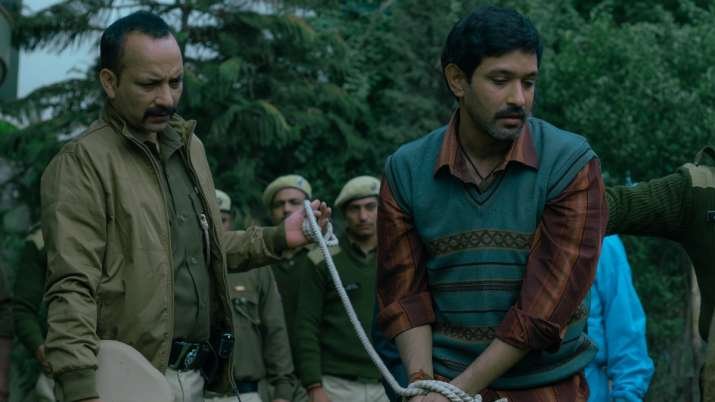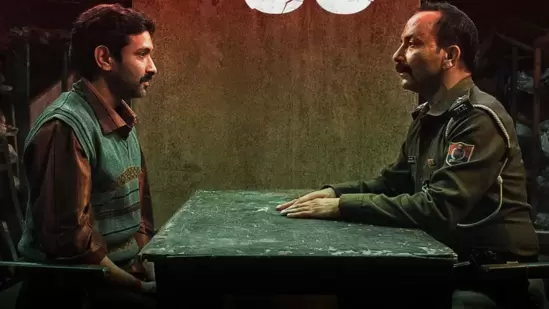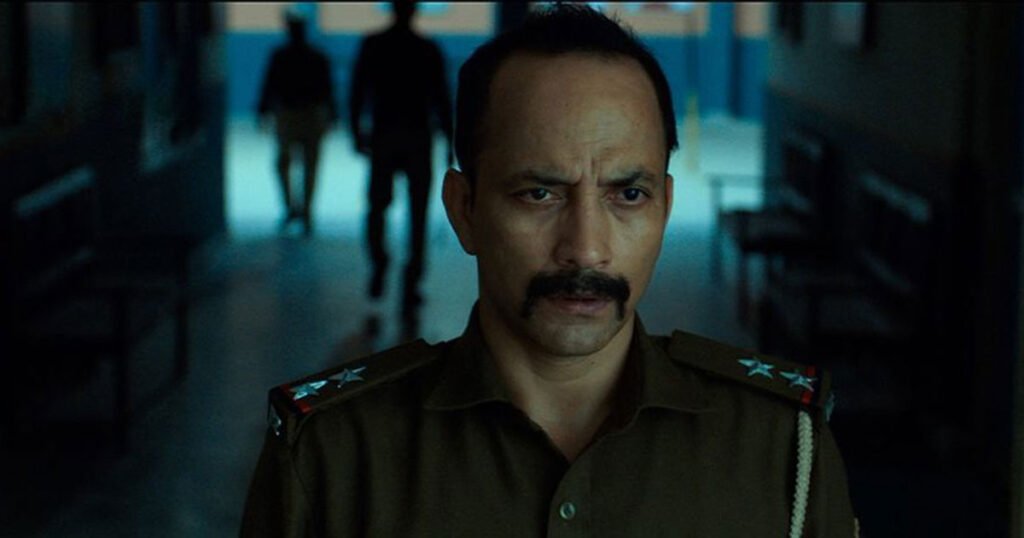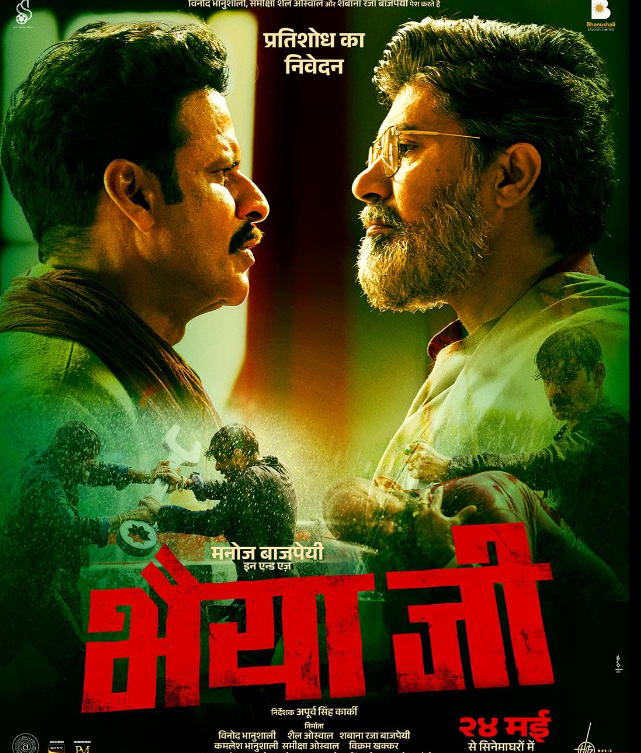Sector 36 feels more like an extended episode of Savdhaan India or Crime Patrol rather than a gripping crime thriller. Despite the strong performances by Vikrant Massey and Deepak Dobriyal, the film offers a casual and toned-down portrayal of the chilling Nithari case, missing the intensity and depth needed to do justice to such a horrific event.

Sector 36 Movie Review: A Missed Opportunity to Tackle the Horrific Nithari Killings with Depth and Nuance
Sector 36, a film directed by Aditya Nimbalkar and produced by Maddock Films, attempts to dramatize one of the most heinous crime events in Indian history—the Nithari Killings. The film stars Vikrant Massey and Deepak Dobriyal in pivotal roles, and it promises to be a crime thriller packed with suspense, horror, and psychological complexity. However, despite a strong start, Sector 36 ultimately falls short in its execution, delivering a lackluster retelling that feels more like a casual episode of Savdhaan India or Crime Patrol rather than the intense, gripping film it could have been.
The Need for a Thoughtful Approach to True Crime
Sensationalizing crime has always been a part of cinema, with violence often glorified and stylized for mass appeal. While it’s natural for filmmakers to present crime stories in a way that grabs the audience’s attention, there is an ethical line that needs to be carefully navigated when transforming real-life events into a cinematic experience. The Nithari Killings, a case that shocked the nation in 2006 with its gruesome details of child abduction, murder, and cannibalism, is one such story that demands a thoughtful, sensitive approach.
While violence in cinema can often evoke fear and discomfort, a well-executed film should also make the audience reflect on the horrors of humanity and the fragility of moral boundaries. Unfortunately, Sector 36 fails to strike this balance, missing the opportunity to delve deeper into the emotional and psychological ramifications of the Nithari case. Instead, it presents a relatively shallow and unsatisfactory exploration of the crimes, reducing them to mere plot points in a crime thriller that doesn’t live up to its potential.
The Plot: A Loosely Based Retelling of the Nithari Killings
Sector 36 is a fictionalized account of the Nithari Killings, where businessman Moninder Singh Pandher and his domestic help, Surinder Koli, were arrested for the abduction and murder of multiple children. The chilling discovery of skulls and bones on their property shocked the nation, and the case revealed a dark web of child exploitation, cannibalism, and illegal organ trafficking.
In the film, Vikrant Massey plays Prem, a character modeled after Surinder Koli, who is portrayed as a psychopath and the primary suspect in the case. Massey’s character is introduced as a cold-blooded, cannibalistic serial killer, and his performance initially promises much but soon loses its edge. Deepak Dobriyal plays the role of a police officer whose own daughter narrowly escapes becoming one of the victims. Dobriyal’s character is central to the investigation, but like much of the film, his storyline struggles to maintain momentum.

Strong Beginning, Weak Execution
Sector 36 opens with a sense of intrigue, as Deepak Dobriyal’s character makes an ominous statement, “Cockroach jitni bhi body bana le, jeet hamesha joote ki hoti hai” (No matter how strong a cockroach’s body is, the shoe always wins). This metaphor sets the tone for the first 15 minutes of the film, which build a gripping, suspenseful atmosphere. Vikrant Massey is introduced as a deeply disturbed individual, and the gruesome details of the Nithari-like killings are presented with disturbing clarity.
However, this intensity fizzles out quickly. The film’s narrative becomes flat and uninspired, lacking the emotional depth or tension needed to sustain audience interest. Rather than delving deeper into the psyche of the serial killer or exploring the horrifying implications of the crimes, Sector 36 takes on a procedural tone, akin to a television crime show. It fails to build on the suspense it initially creates, and instead, the storyline meanders, filled with underwhelming twists and forgettable characters.
Missed Opportunities for Strong Social Commentary
Sector 36 tries to incorporate various themes into its narrative, including corrupt police officers, class struggles, and the disparity between the rich and the poor. However, these angles feel half-baked, never fully integrated into the main storyline. There is potential for rich social commentary in a story like this, but the film never commits to exploring these issues in depth.
For example, there’s a scene where Dobriyal’s character discusses how the idea of “country” is only celebrated twice a year, reflecting on the disconnect between personal sacrifice and national pride. This conversation could have been a profound reflection on the larger societal issues underlying the crime, but instead, it feels out of place and disconnected from the main plot.
The film also briefly touches on the motivations behind the killer’s actions, offering an empathetic backstory for Vikrant Massey’s character. However, this attempt at humanizing a cold-blooded murderer feels forced and unnecessary, diluting the impact of the crimes and the gravity of the situation. Rather than evoking fear or revulsion, the character’s backstory only serves to confuse the audience, making it harder to fully grasp the horror of the events.
Character Performances: A Mixed Bag
Both Vikrant Massey and Deepak Dobriyal are talented actors, and their performances are the saving grace of Sector 36. Massey, known for his boy-next-door roles, tries to break free from his usual image and embrace the role of a psychotic killer. In the opening scenes, he manages to exude a chilling presence, but as the film progresses, his performance becomes less convincing. The writing fails to provide him with enough depth or nuance to fully embody the darkness of his character, and Massey’s efforts to bring Prem to life ultimately fall flat.
Deepak Dobriyal, on the other hand, shines in his role as a conflicted police officer. His portrayal of a father driven by personal stakes in the investigation is powerful, and there are moments where he manages to elevate the film with his emotional intensity. A standout scene where his wife grabs him by the collar and demands that he find the man who tried to abduct their daughter is more impactful than any other moment in the film. Yet, despite Dobriyal’s strong performance, the weak script and lack of character development limit his ability to carry the film.

Poor Pacing and Lack of Emotional Impact
One of the biggest shortcomings of Sector 36 is its pacing. After an intriguing start, the film quickly loses steam, and the tension evaporates. Scenes that should be emotionally charged or terrifying are executed with a sense of detachment, as if the filmmakers themselves are unsure of how to handle the material. The film attempts to shock the audience with gruesome visuals—chopped bodies, skeletons, and confessions of cannibalism—but these moments feel superficial and fail to evoke the visceral reaction they should.
Even when the film addresses the more horrifying aspects of the Nithari case, such as child pornography and organ trafficking, it does so in a way that feels disjointed. There is no sustained emotional arc, and the film’s disjointed storytelling leaves the audience disengaged. What could have been a hard-hitting, unforgettable thriller turns into a shallow and forgettable retelling of one of India’s most disturbing true crime cases.
Conclusion: A Missed Opportunity
Sector 36 had the potential to be a powerful crime thriller that tackled the Nithari Killings with the sensitivity and gravity the story deserves. However, the film’s casual approach, lack of depth, and weak script ultimately undermine its impact. Despite strong performances by Vikrant Massey and Deepak Dobriyal, the film fails to live up to its promise, delivering a diluted version of real-life horror.
In the end, Sector 36 feels like a missed opportunity—a film that could have been a thought-provoking exploration of human depravity but instead settles for being an underwhelming crime drama that lacks the emotional and psychological weight to make a lasting impression.
Stay tuned to Club4Celebs for more updates.


